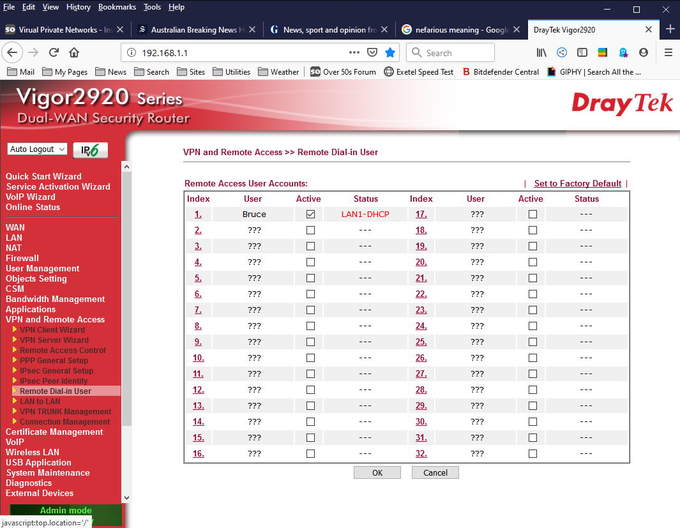Given that the size of the internet, with associated risks, is increasing exponentially, additional defensive measures have become essential. I found this extract helpful in deciding to install a VPN:
Here are a few most common cases when you should strongly consider using a VPN:
You use public Wi-Fi regularly
When you’re using a public Wi-Fi network, even a password-protected one, a VPN is your best friend. That’s because using public hotspots can be rife with hazards. Hackers have many methods to intercept your internet traffic and steal your passwords, files, and photos.
You travel a lot
Going to a foreign country? A VPN can help you access services that may not be available in that country – say, China, where the government blocks sites like Facebook. Even if you just cross the border into a neighbouring country, you will most likely lose access to some streaming content to which you subscribe.
You want to shield your browsing from third parties
Even when browsing the web in the comfort of your own home, using a VPN is a pretty good idea. For instance, you may want to buy your little nephew a birthday gift online without being bombarded with toy truck ads for the next six months. Or perhaps you need to do a quick research of health clinics without attracting your employer’s attention.
You want to avoid government surveillance
Then there’s the widespread surveillance by local and foreign governments. The Snowden leaks and years of follow-up reporting have shown us the vast scope and reach of worldwide surveillance. It would be illegal for police officers to search your home without a warrant. Yet government agencies track and collect your browsing activity, messages, social posts, and other private data. They even share this information across country borders.
You are a journalist or political activist
Some countries don’t have the same protections for freedom of the press, speech, and expression that most democratic countries enjoy. In fact, some regimes resort to harsh measures to monitor and punish those whom they see as threats to the government. People who dare to stand up have to take extra precautions to protect their communications.
You use file-sharing services
P2P (Peer-to-Peer) is one of the fastest and most effective methods to share large sets of data across a network. It is used to distribute open-source software, corporate and scientific data, and public domain videos.
But despite these legitimate uses, many ISPs try to discourage internet users from P2P file sharing. They do it by controlling access to file-sharing websites or setting bandwidth limits. That slows down their customers’ internet speed and restricts their choices.



